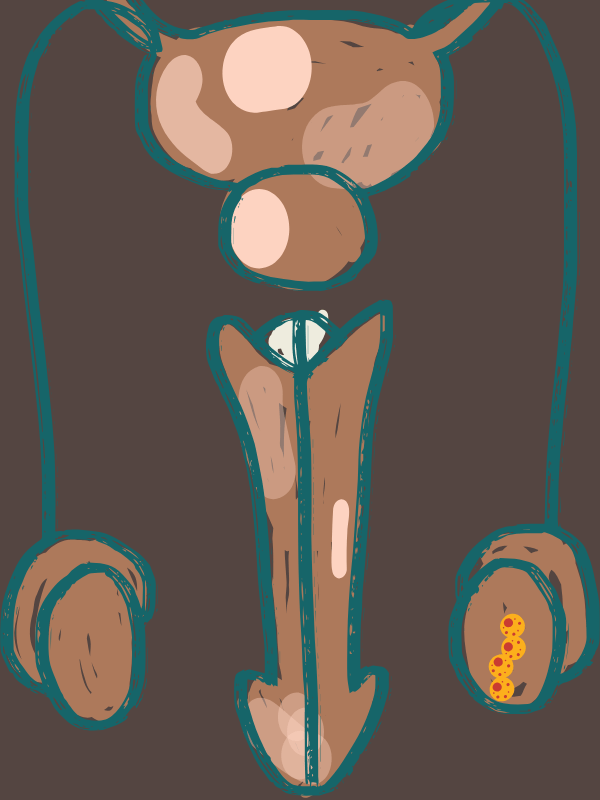
Early detection of testicular cancer starts with you—not a doctor!
April is Testicular Cancer Awareness Month, and if you're between 15 and 49, this is a conversation that belongs to you. Testicular cancer is rare but highly treatable, especially when caught early—and nature, once again, has some skin in the game. Amidst the arsenal of medical interventions, phytochemicals emerge as intriguing agents in the realm of prevention and adjunct therapy.
What Is Testicular Cancer?
Testicular cancer develops in the testicles, two small oval-shaped organs located below the penis in a skin pouch called the scrotum. The testicles produce sperm and the hormone testosterone1.
Decoding Testicular Cancer Signs:
Vigilance is key, as early indicators include:
- Painless Lump or Swelling: Often the first noticeable sign.
- Heaviness in the Scrotum: A sensation of weight or discomfort.
- Ache: In the testicle or scrotum or lower abdomen.
Prompt attention to these symptoms facilitates early diagnosis, which is crucial for favourable outcomes.
Testicular cancer test and treatment2,3:
- Ultrasound and blood tests diagnose most cases
- Treatment (often orchiectomy + chemo/radiation) is highly effective
- Fertility can be impacted—bank sperm before treatment
Phytochemicals: Exploring Their Role
|
Phytochemical |
Plant Sources |
Potential Support in |
|
Curcumin4 |
Turmeric |
Inducing apoptosis, enhancing antioxidant capacity, inhibiting cancer cell viability, forming colony etc. |
|
Vincristine5,6,7 (Note: This is also used an anti-cancer drug)
|
Madagascar Periwinkle |
Inhibiting microtubule polymerization and assembly, leading to metaphase arrest and cell death. |
|
Etoposide and Teniposide5,8,9,10,11 (Note: These are also used as drugs in Testicular cancer treatment) |
Mandrake, Himalayan mayapple
|
Inhibits DNA synthesis by forming a complex with topoisomerase II and DNA. |
Integrating Phytochemicals into Lifestyle
To potentially benefit from these compounds:
- Regular Consumption: Include a variety of phytochemical-rich foods in daily meals12.
- Stay Informed: Keep abreast of emerging research linking diet and testicular cancer prevention.
- Holistic Health: Combine dietary measures with regular self-examinations and medical check-ups.
Conclusion: A Symphony of Strategies
While the exploration of phytochemicals in testicular cancer is ongoing, their inclusion in a balanced diet complements conventional prevention strategies. Awareness, timely medical consultation, and a proactive lifestyle collectively enhance resilience against testicular cancer.
Disclaimer:
The information provided is solely for educational purposes. This content does not replace medical advice, diagnosis, or treatment. Consult a qualified healthcare professional for any medical queries or concerns. BeatNaturally does not promote or suggest specific tests, doctors, procedures, viewpoints, or details mentioned in the content.
Sources:
- https://www.nhs.uk/conditions/testicular-cancer/what-is-testicular-cancer/
- https://www.nhs.uk/conditions/testicular-cancer/tests-and-next-steps/
- https://www.nhs.uk/conditions/testicular-cancer/treatment/
- https://onlinelibrary.wiley.com/doi/10.1155/2023/4558299
- https://pmc.ncbi.nlm.nih.gov/articles/PMC7025531/
- Vincristine | Cancer information | Cancer Research UK
- https://phytochem.nal.usda.gov/chemical-vincristine
- https://www.sciencedirect.com/topics/biochemistry-genetics-and-molecular-biology/teniposide
- https://phytochem.nal.usda.gov/chemical-etoposide
- https://phytochem.nal.usda.gov/chemical-teniposide
- https://www.acs.org/molecule-of-the-week/archive/e/etoposide.html
- British Journal of Medical Practitioners
